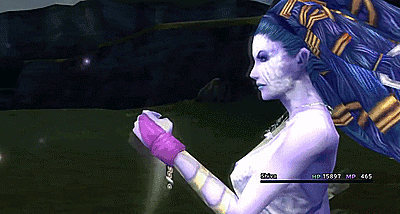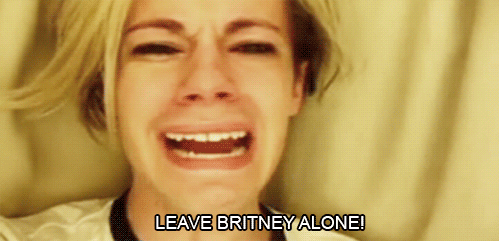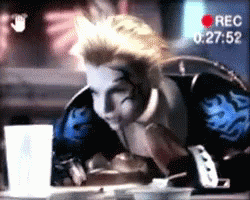Chapter 5
The French keep moving forward, with the Russians backing away in front of them. By the 10th of August, Prince Andrew is fairly near to Bald Hills, along with his regiment. Also it's hot, but considering Tolstoy was in Russia, and I'm now sitting in a global-warming heatwave in the UK, I'm ignoring that.
Prince Andrew is very popular amongst his men, but he's only nice to new people. Anyone from his past, he draws away from. Right now, he's angry about the invasion, which is distracting him from his own problems, mostly the taking of Smolensk - which he still believes could have been defended - and having to make his own father flee to Moscow and abandon Bald Hills to the French.
There's no reason for Prince Andrew to visit Bald Hills, but he does anyway. It really is abandoned, apart from an old peasant sitting in the garden, whom Andrew knows from childhood. When Andrew rides up, another person is disturbed - Apalytych, who has sent his family away but remains at Bald Hills himself, with some servants. He begins weeping and kissing Andrew's knee when he sees him, then pulls himself together and reports on the changes. Everything valuable has either been moved to Bogucharovo - Andrew's own home - except for things like the crops, which have just been destroyed instead, since they're not ripe. Most of the peasants have gone to Bogucharovo too. Andrew asks when his father and sister - and presumably, his son - left, meaning, when did they go to Moscow, but Alpatych understands the questions are referring to when they departed to Bogucharovo, and replies that they left on the 7th. I feel like they might be different places and thus this exchange is a misunderstanding, but I'm not certain because I don't really know where Bogucharovo is, and also, Andrew was very clear about his family going to Moscow, so I don't know why Alpatych would misunderstand.
I looked it up, and I think Bogucharovo is further north than Bald Hills, but still over a hundred kilometres away from Moscow. While I was googling this, google told me that many people ask "is War and Peace the greatest novel ever written?". That's a really difficult question to answer, not least because there's no definition of "greatest novel". I'd say it's up there. Keeping a story this tight and consistent over this length is an amazing achievement, and Tolstoy definitely had an eye for character and psychoanalysis. That said, the book is relatively simply written compared to what I would expect from a modern book. I think there are several reasons for that. Firstly, it was written over a hundred years ago, and while it moved the whole field of literature forward in its day, it also enabled newer writers to move beyond it, and to explore more. To use an analogy, it's as if the whole field of literature, and every writer who has ever lived, has been working together to build a road. Maybe Tolstoy built ten feet of road with this novel, while most writers only build a foot or two, if that. However, having built that ten feet, other writers can then walk down it, and build on it further, even if each of them only adds a tiny bit more distance. It's like how, as a scientist, I know more about evolution than Darwin ever did, but that's partly thanks to the work he did, and the strides he made in the field. Secondly, psychology and personal identity weren't as advanced then as they were today. For example, Andrew Bolkonsky is very clearly depressed, and has been for a while. Tolstoy describes Andrew's thoughts and actions, but doesn't delve further into why as an author might today. The same with old Nikolai, the miserable old bastard. There's probably a lot going on there, but we get a description of what he does and a little of what he thinks, in very simple terms. It reminds me a lot of Stephen King's or Terry Pratchett's quick thumbnail sketches of a character. We can also talk about gender identity. Sonya has the courage to express what she wants to Nikolai because she's dressed as a man at the time, and it gives her confidence. Today, an author might explore what that meant for a character's gender identity or sexuality, but Tolstoy just describes it. Finally, I tend to enjoy reading a lot of mystery stories or psychological thrillers. In those stories, why a character does something or why they say something a certain way is important, which is not so much the case here. We don't read between the lines, things are very clearly stated. The surprises come from what will happen, or what is historically known to have happened and how we got there, not from unrevealed motivations or secrets. Wilkie Collins, the father of the modern psychological thriller, was Tolstoy's contemporary, with many of his novels released in the 1860s, while War and Peace was being written.
Alpatych asks Andrew a few more household questions, which Andrew recognises as Alpatych's attempt to maintain order in a world gone mad. He also mentions that a few regiments have ridden over the gardens. Andrew asks what Alpatych intends to do when the French arrive. His reply is unclear. Andrew sees some little girls and their mother taking plums from his trees, and pretends not to see them. It makes him happy to see people who don't share his concerns and desires, and he wants them to get their desire - the plums.
On the 7th of August, Prince Bagration wrote to Arakcheev from further up the Smolensk road, knowing that the Tsar would read his letter. He writes that he does not approve of Barclay de Tolly abandoning Smolensk, and most definitely does not want Russia surrendering. Basically, he wants the Tsar to take over from Barclay de Tolly. He also accuses de Tolly's advisor of being a French spy, and claims that the entire army, and, indeed, the Russian people, agree with everything he's writing.




















